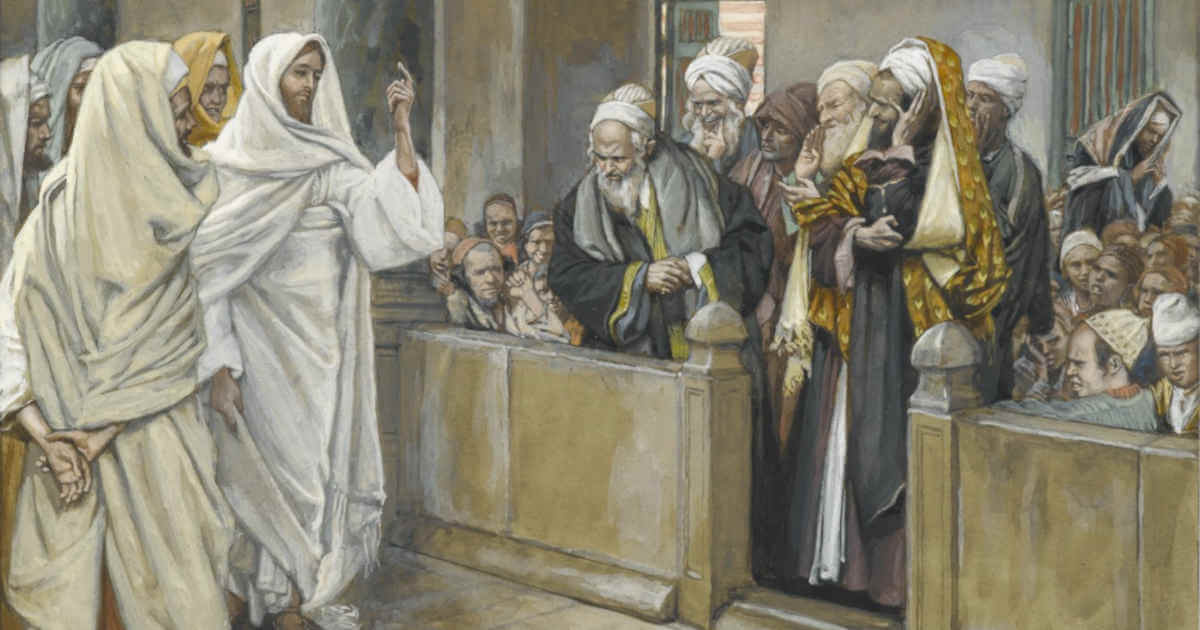Jijo Kandamkulathy, CMF
Claretian Publications, Macau
32ND SUNDAY – C
Lk 20:27-38
Resurrection was a hot topic of debate among the Sadducees and the Pharisees though both groups were religious. In our days, this debate takes place between those who believe in God and otherwise. The Sadducees constituted the class of the rich who were collaborators of the Roman government. All chief priests (who were primarily responsible for the death of Jesus) belonged to this sect.
Listening to Jesus, the Sadducees understood that Jesus believed in resurrection. To convince him to change his opinion they resorted to a text of the Torah that permits the remarriage of a widow with the younger brothers of her husband. They were not prepared for the answer that Jesus gave, which was not as they had anticipated. Though the Pharisees believed in resurrection, they were convinced that eternal life is the perfection of this life. They had no response to Jesus’ answer and stopped questioning Him.
Jesus understands resurrection so radically differently from the Pharisees. He took the floor and articulates his answer. The first: “The sons and daughters of this age marry and are given in marriage, but those of the other world … they are like angels … they are the sons/daughters of God” (vv. 34-36). It would make no sense to die, and then return to the same body, the same life. Life with God is a completely new condition: when introduced into it, a person, while maintaining one’s own identity, becomes a different being, immortal, equal to the angels of God.
How will this life with God be? Here is a question to which we must respond with great caution because there is an ever-looming danger of projecting the afterlife as the Pharisees and the Sadducees did, that is, whatever positive thing we experience here is infinitely multiplied—joys, pleasures, satisfaction—and as the rabbis supported, also the return to married life.
Behind certain statements, certain prayers, certain questions of many Christians today there still lurks, unfortunately, an image of the “resurrection of the dead” similar to that of the Pharisees. The resurrection mentioned by Jesus—the one that transforms humans to make them similar to the angels of God—is completely different. For Jesus, a person lives on earth as a period of gestation. They prepare for a new birth after which there will be no other because the world they will enter will be final. In it there will not be any form of death.
Like the fetus in the mother’s womb that cannot imagine the world that awaits it, even so, a person is not able to imagine how life will be with God. It is a mystery that is not revealed, not because the Lord wishes to increase the suspense and surprise, but simply because our mind is not able to understand it. “A perishable body is a burden for the soul and our tent of clay weighs down the active mind. We are barely able to know the things of earth, who then may hope to understand heavenly things?” (Wis 9:15-16).
We can approach this sublime and ineffable reality only through faith, believing that those things that no eye has seen, no ear has heard nor any mind fathomed, God has prepared for those who love Him (1 Cor 2:9). Instead of inquiring about what we are not able to understand, it is better to dwell on the certainties that the resurrection offers: in particular that the same life will not continue as it was while we were alive, but we will acquire a new form, a new nature, much like the angels.
(Indebted to Fernando Armellini SCJ for the textual analysis)
(Image source: https://catholic-daily-reflections.com)


 Follow
Follow


